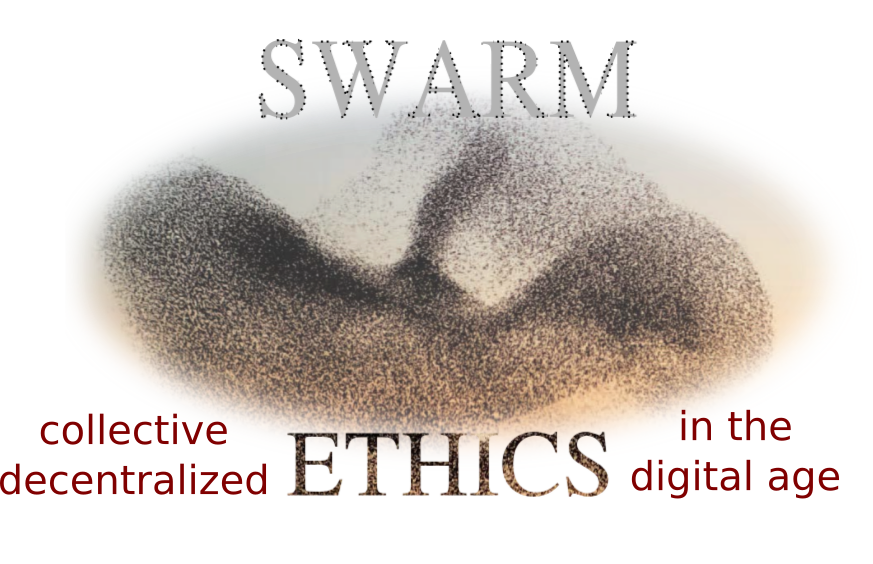Prof. Dr. Ingrid Vasiliu-Feltes
In the ever-evolving landscape of technology and business, pursuing excellence demands innovative approaches that harness the power of data, strategic intelligence, and ethical considerations. Two emerging paradigms, Federated Learning and Swarm Ethics™, have gained significant traction due to their potential to revolutionize how businesses optimize their digital strategy and operations. This article explores the synergy between these paradigms and their role in advancing business excellence. On the journey toward business excellence, leveraging the synergy between Federated Learning and Swarm Ethics™ amplifies the power of strategic intelligence. This dual approach empowers businesses to navigate challenges and opportunities while upholding ethical principles. As technology and business landscapes evolve, embracing this synergy will optimize operational efficiency and pave the way for a responsible future of business excellence. Future research could focus on developing methodologies and frameworks that seamlessly integrate collective swarm intelligence, federated learning, data mesh, and data fabric. Investigating the scalability and efficiency of these approaches in large-scale data ecosystems will be crucial for forward-thinking companies that wish to remain competitive in the phygital era.
Introduction
In the ever-evolving landscape of technology and business, pursuing excellence demands innovative approaches that harness the power of data, strategic intelligence, and ethical considerations. Two emerging paradigms, Federated Learning and Swarm Ethics™, have gained significant traction due to their potential to revolutionize how businesses optimize their digital strategy and operations. This article explores the synergy between these paradigms and their role in advancing business excellence.
The ability to prioritize actionable strategic intelligence is a business imperative for enterprises with numerous interconnected devices that generate massive amounts of data in the cloud. As technology continues to advance and connect various devices, organizations must possess the capability to gather, analyze, and apply information strategically to stay ahead of the competition.
Strategic intelligence relies on learning, education, training, and knowledge management. Further benefits can be derived by leveraging federated learning and swarm collective intelligence to optimize business ecosystems.
Federated learning is a decentralized approach to machine learning, where multiple devices or entities collaborate to train a shared model while keeping their data locally. This allows for privacy preservation and distributed learning. Swarm collective intelligence refers to the collective behavior of decentralized, self-organized systems where individuals or entities interact and collaborate to solve complex problems or make decisions.
Swarm Ethics™ can be foundational to the responsible, transparent, and accountable use of data in this phygital era. It emphasizes the collective behavior and decision-making of decentralized systems, ensuring that ethical considerations are embedded in the use of data. By incorporating swarm ethics, organizations can ensure that data use respects privacy, fairness, and societal values.
Additionally,a Swarm Ethics™ approach can exponentially increase the business insights required to remain competitive when combined with federated learning. By embracing Swarm Ethics™ and federated learning, organizations can harness the power of data while upholding ethical standards and gaining a competitive edge.
Synergistic Convergence for Business Excellence
Federated Learning has emerged as a groundbreaking approach to machine learning, where multiple devices or nodes collaboratively train a shared model while keeping data decentralized. This distributed approach preserves privacy and enables organizations to leverage diverse data sources, leading to more comprehensive and accurate insights. This technique holds immense promise for businesses, especially for heavily regulated industries, where data privacy and security are paramount. By training models on decentralized data sources, companies can extract insights without centralizing sensitive information, thus addressing privacy concerns and complying with data protection regulations. The decentralized nature of Federated Learning respects data privacy while enabling businesses to extract valuable insights.
Swarm Ethics™ draws inspiration from natural swarm behavior observed in social organisms like bees and ants. It translates these principles into human decision-making contexts, promoting collaboration, diversity, and adaptability. Fueled by Swarm Agile Collective Intelligence (SACI) and Federated Learning (FL), Swarm Ethics™ can harness the untapped potential and drive unparalleled returns on investment (ROI), all while elevating privacy and security considerations to new heights.
Applying Swarm Ethics™ can facilitate more robust decision-making processes. Teams comprising members from different functional backgrounds can collaboratively address complex challenges. This diversity of thought enhances problem-solving and minimizes blind spots. Furthermore, Swarm Ethics™ promotes adaptability – a crucial trait in today’s rapidly changing business landscape. Businesses can respond more effectively to disruptions and capitalize on emerging opportunities by imbibing principles of decentralized decision-making and continuous feedback.
The fusion of Federated Learning and the new open interactive systems theory-powered approach offered by Swarm Ethics™ allows the deployment of proactive, agile collective ethics to be embedded at each company level, enabling a potent architecture for optimizing business excellence through strategic intelligence.
Industry Impact
In a technologically driven landscape, the fusion of Federated Learning and Swarm Ethics™ signifies more than just a convergence; it’s a strategic leap forward. These methodologies rewrite the script of collaborative decision-making, data processing, and business transformation. The benefits are unmistakable: optimized ROI, fortified security, and an overarching commitment to privacy.
Integrating federated learning and Swarm Ethics™ marks a transformative paradigm shift across industries. For example, in Energy, Transportation, and Telecommunications, this synergy optimizes data-driven insights for efficient resource allocation, predictive maintenance, and network optimization, driving operational excellence. In Health Tech, Biotech, and MedTech, it enables ethically sound data collaboration, expediting R&D, personalized treatments, and supply chain traceability. This convergence elevates business intelligence through real-time, privacy-preserving data aggregation and analysis. Additionally, it aligns seamlessly with Environmental, Social, and Governance (ESG) goals, augmenting sustainability efforts, reducing carbon footprints, enhancing patient care, and fostering responsible innovation. This dynamic amalgamation empowers industries to thrive while championing ethical practices and sustainable growth.
Future Directions
Future research could focus on developing methodologies and frameworks that seamlessly integrate collective swarm intelligence, federated learning, data mesh, and data fabric. Investigating the scalability and efficiency of these approaches in large-scale data ecosystems will be crucial for forward-thinking companies that wish to remain competitive in the phygital era.
Conclusion
In the journey toward business excellence, leveraging the synergy between Federated Learning and Swarm Ethics™ amplifies the power of strategic intelligence. This dual approach empowers businesses to navigate challenges and opportunities while upholding ethical principles. As technology and business landscapes evolve, embracing this synergy will optimize operational efficiency and pave the way for a responsible future of business excellence.
Additional Reading
M. Al-Quraan et al., “Edge-Native Intelligence for 6G Communications Driven by Federated Learning: A Survey of Trends and Challenges,” in IEEE Transactions on Emerging Topics in Computational Intelligence, vol. 7, no. 3, pp. 957-979, June 2023, doi: 10.1109/TETCI.2023.3251404.
Yang, Q., Huang, A., Fan, L., Chan, C. S., Lim, J. H., Ng, K. W., … & Li, B. (2023). Federated Learning with Privacy-preserving and Model IP-right-protection. Machine Intelligence Research, 20(1), 19-37.
Kano, T. (2023). Review of Interdisciplinary Approach to Swarm Intelligence. Journal of Robotics and Mechatronics, 35(4), 890-895.
Moshawrab, M., Adda, M., Bouzouane, A., Ibrahim, H., & Raad, A. (2023). Reviewing Federated Learning Aggregation Algorithms; Strategies, Contributions, Limitations and Future Perspectives. Electronics, 12(10), 2287.
Pandya, S., Srivastava, G., Jhaveri, R., Babu, M. R., Bhattacharya, S., Maddikunta, P. K. R., … & Gadekallu, T. R. (2023). Federated learning for smart cities: A comprehensive survey. Sustainable Energy Technologies and Assessments, 55, 102987.
Wen, J., Zhang, Z., Lan, Y., Cui, Z., Cai, J., & Zhang, W. (2023). A survey on federated learning: challenges and applications. International Journal of Machine Learning and Cybernetics, 14(2), 513-535.
Zeb, A., Din, F., Fayaz, M., Mehmood, G., & Zamli, K. Z. (2023). A Systematic Literature Review on Robust Swarm Intelligence Algorithms in Search-Based Software Engineering. Complexity, 2023.


